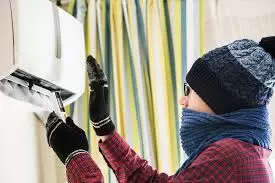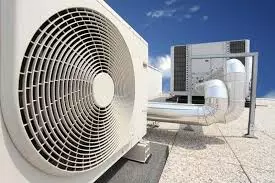Maintaining the right temperature in your home is crucial for comfort, energy efficiency, and cost savings. The optimal air conditioning temperature can vary based on several factors, including the season, occupancy, and individual preferences. This blog post provides expert tips on how to set the best temperature for both your air conditioner and heater to ensure a comfortable and energy-efficient home.
Understanding the Optimal Air Conditioning Temperature

What Temperature Should I Put My AC On?
The optimal air conditioning temperature for most homes is around 78°F (25°C) when you are at home and awake. This temperature strikes a balance between comfort and energy efficiency. During the night, you can set the temperature a bit higher as cooler outdoor temperatures can aid in keeping the home comfortable.
Recommended Air Conditioning Temperature
Experts recommend setting your thermostat to 78°F in the summer. This setting allows your air conditioning system to operate efficiently without overworking. However, you can adjust this temperature based on your comfort level and specific needs.
What Temperature to Set Air Conditioner When Away in Summer
When you are away from home during the summer, set your air conditioner to a higher temperature, around 85°F (29°C). This prevents your AC from running unnecessarily, thus saving energy and reducing your utility bills. You can use a programmable thermostat to automatically adjust the temperature settings based on your schedule.
Best A/C Temperature for Different Situations
Daytime Temperature Settings
During the day, when people are active and moving around, maintaining an indoor temperature of 78°F is generally comfortable. This setting is optimal for reducing energy consumption while keeping your living space cool.
Nighttime Temperature Settings
At night, you can increase the temperature slightly as cooler outdoor air and less activity can make the home feel cooler. Setting your thermostat to 80°F (27°C) or using fans can provide adequate comfort while conserving energy.
Optimal Heater Temperature in Winter

Is 72 a Good Temperature for Heat in the Winter?
The question “is 72 a good temperature for heat in the winter?” is commonly asked. For many, 72°F (22°C) is a comfortable indoor temperature during the winter. It provides warmth without causing excessive energy consumption. However, adjusting the temperature to around 68°F (20°C) when you’re home and lowering it even further when you’re asleep or away can lead to significant energy savings.
Best Temperature for Heater in Winter
For optimal efficiency, the best temperature for heater in winter is around 68°F. Lowering the temperature to 60°F (15°C) to 62°F (17°C) at night or when the house is empty can reduce heating costs. Utilizing a temperature controlled space heater in frequently used rooms can also help maintain comfort without heating the entire home.
Heater Temperature in Winter
Maintaining a consistent and moderate heater temperature in winter ensures comfort and efficiency. Avoid frequent adjustments to the thermostat, as this can cause your heating system to work harder and use more energy. Instead, find a comfortable setting and make minor adjustments as needed.
Average Heat Temperature Recommendations
Optimal AC Temperature
The optimal AC temperature is essential for maintaining a comfortable indoor environment while minimizing energy use. As previously mentioned, 78°F is generally recommended for cooling during the summer, while 68°F is suggested for heating during the winter. These temperatures provide a good balance between comfort and energy efficiency.
Best A/C Temperature
The best A/C temperature for cooling efficiency is usually between 76°F and 78°F. This range allows your air conditioner to operate effectively without consuming excessive energy. You can adjust this temperature slightly based on personal preferences and weather conditions.
Practical Tips for Energy Efficiency

Programmable Thermostats
Investing in a programmable thermostat can help you maintain the optimal air conditioning temperature and heating settings automatically. These devices allow you to set schedules for different times of the day and days of the week, ensuring that your HVAC system operates efficiently whether you’re home or away.
For More about AC Visit: REPAIRING SPLIT SYSTEMS WITH YOUR OWN HANDS
Benefits of Consistent Settings
Maintaining consistent temperature settings can prevent your HVAC system from overworking. This not only saves energy but also extends the lifespan of your equipment. Avoid drastic changes in thermostat settings to keep your system running smoothly.
Energy-Saving Practices
In addition to setting the right temperatures, there are other practices that can help save energy:
- Use ceiling fans to enhance air circulation, allowing you to set the thermostat higher in summer and lower in winter.
- Ensure your home is well-insulated to keep cool air in during the summer and warm air in during the winter.
- Regularly maintain your HVAC system to ensure it operates at peak efficiency.
Conclusion
Setting the optimal air conditioning temperature and heating settings is key to achieving a comfortable and energy-efficient home. By following the recommended temperature guidelines and utilizing programmable thermostats, you can enjoy a pleasant indoor environment while reducing energy costs. Remember, the best temperature settings can vary based on personal preferences and external conditions, so find what works best for your household and stick to it for maximum efficiency.
